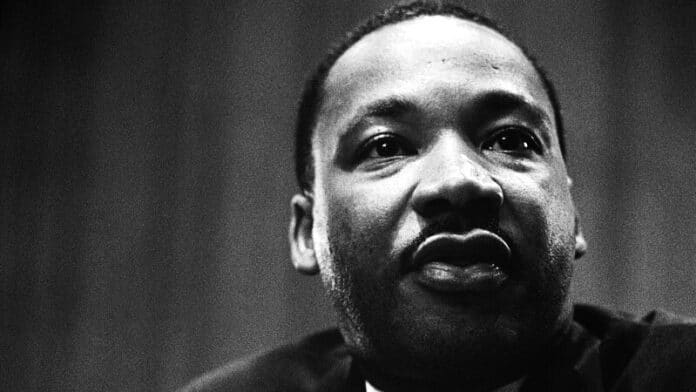Dr. Martin Luther King Jr. remains one of the most influential figures in American history, a leader whose vision of equality and nonviolence continues to inspire generations. While his work primarily unfolded in the South, the ripple effects of his activism reached every corner of the nation, including Topeka, Kansas.
Dr. King’s Legacy
Dr. King’s leadership during the Civil Rights Movement reshaped the social and legal fabric of the United States. His role in organizing landmark events, such as the Montgomery Bus Boycott, the Birmingham Campaign, and the March on Washington, paved the way for monumental changes, including the Civil Rights Act of 1964 and the Voting Rights Act of 1965. Dr. King’s philosophy of nonviolence and his eloquent calls for justice, such as in his iconic “I Have a Dream” speech, remain powerful reminders of the ongoing fight for equality.

Topeka’s Connection to Dr. King’s Vision
Topeka holds a significant place in the broader civil rights narrative. The city’s role in the historic Brown v. Board of Education of Topeka Supreme Court case, which ended legal segregation in public schools, embodies the ideals Dr. King fought for throughout his life. The victory in this landmark case was a precursor to the national movement Dr. King would later lead.

Dr. King’s influence also directly touched Topeka through his visits and speeches. In 1968, just weeks before his assassination, Dr. King spoke at Kansas State University, delivering a message of hope and resilience. While his speech occurred in Manhattan, Kansas, the proximity to Topeka brought his presence and ideals closer to the community. His call for justice and equity resonated deeply, reinforcing the importance of local activism in advancing civil rights.

Carrying the Dream Forward in Topeka
Dr. King’s legacy lives on in Topeka through community efforts to honor his work and continue the fight for social justice. Events such as the annual MLK Gospel Concert, held at Gage Park, celebrate his life and vision by bringing people together in unity and reflection. The concert, featuring powerful gospel performances, serves as both a celebration of progress and a reminder of the work still to be done.
Additionally, the presence of the Brown v. Board of Education National Historic Site stands as a testament to Topeka’s critical role in the civil rights movement. The site’s educational programs and exhibits align with Dr. King’s dream of ensuring equality through knowledge and understanding.

Honoring Dr. King Today
As Topekans gather to commemorate Dr. King’s legacy, it is an opportunity to reflect on his timeless messages of love, justice, and equality. His work reminds us that change begins at the grassroots level, with individuals and communities coming together to challenge injustice and envision a better future.

In Dr. King’s words, “The arc of the moral universe is long, but it bends toward justice.” Topeka’s history and ongoing commitment to civil rights serve as a reminder that we all have a role to play in bending that arc further toward justice and unity.





